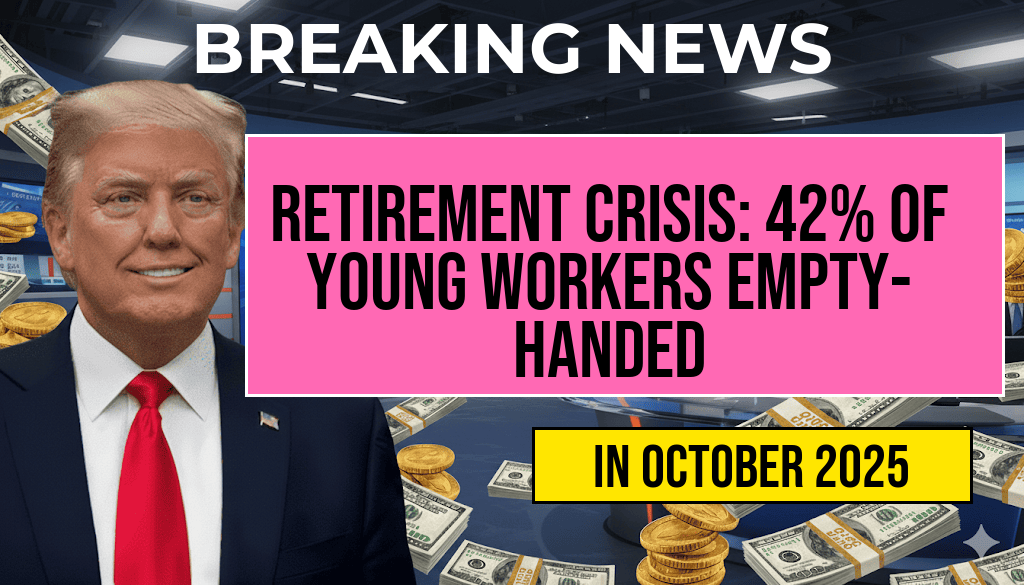As Americans grapple with economic uncertainty and an aging population, new research reveals a striking psychological shift: two-thirds of U.S. adults fear outliving their savings more than death itself. This widespread apprehension underscores deep concerns about financial security in retirement, especially as many face unpredictable markets, rising healthcare costs, and inadequate retirement planning. The survey, conducted by a leading financial research firm, highlights a growing anxiety that personal finances may not sustain them through their later years, surpassing even fears of mortality. Experts warn that this mental burden could influence retirement decisions and overall well-being, emphasizing the urgent need for improved financial education and planning resources across the country.
Understanding the Fear of Outliving Savings
Survey Findings and Demographic Insights
| Aspect | Percentage of Americans Concerned |
|---|---|
| Fear of outliving savings | 66% |
| Fear of death | 45% |
| Concern about healthcare costs | 78% |
| Confidence in retirement readiness | 34% |
The survey, encompassing over 2,000 adults aged 40–70, indicates that a significant majority are more anxious about their financial survival in old age than about the inevitability of death. Notably, demographic breakdowns reveal that younger seniors (ages 40–55) exhibit higher levels of concern, often linked to insufficient retirement savings and economic volatility. Conversely, those closer to retirement age tend to worry about healthcare expenses and potential long-term care needs.
Why Are Americans More Afraid of Financial Insecurity?
Several factors contribute to this pervasive fear:
- Inflationary pressures: Rising prices, especially for healthcare and housing, erode savings faster than individuals can replenish them.
- Pension uncertainty: Declining pension plans and reliance on 401(k)s and personal savings leave many vulnerable to market fluctuations.
- Longevity trends: Advances in healthcare mean Americans are living longer, increasing the risk of exhausting financial resources.
- Economic instability: Fluctuating markets and recent recessions have shaken confidence in traditional retirement strategies.
Financial planners emphasize that the fear stems not solely from current savings but from an awareness of how unpredictable future expenses may be, especially if health deteriorates or economic conditions worsen.
Implications for Retirement Planning and Policy
Behavioral Changes Driven by Anxiety
Many individuals are altering their retirement plans in response to these fears. Some are working longer than initially planned, while others are reducing discretionary spending or delaying major life events such as home purchases or travel. The trend toward extended employment could have broader economic effects, influencing labor markets and Social Security sustainability.
Policy Responses and Challenges
Policy experts suggest that addressing this widespread concern requires a multi-pronged approach:
- Enhancing retirement savings programs: Expanding access to employer-sponsored plans and incentivizing contributions could bolster individual financial buffers.
- Improving financial literacy: Education initiatives can help Americans better understand investment options, risk management, and long-term planning.
- Healthcare reform: Making healthcare more affordable and predictable could alleviate one of the largest stressors for future retirees.
However, implementing these changes faces political and practical hurdles. Critics argue that without systemic reforms, individual efforts may fall short of alleviating deep-seated fears.
The Human Toll of Retirement Anxiety
Beyond economic implications, the psychological impact of fearing outliving savings is profound. Studies link financial stress with increased rates of anxiety and depression among older adults, which can impair decision-making and overall health. Experts warn that persistent worry about financial security might lead to reduced quality of life and strained familial relationships.
Expert Perspectives
Dr. Lisa Chen, a gerontologist at the University of Michigan, emphasizes that “the fear of outliving one’s resources is not just about finances—it’s about the fundamental sense of security and independence.” She advocates for proactive planning and community-based support systems to help individuals regain confidence in their financial futures.
Conclusion
The rising concern among Americans about the possibility of depleting their retirement savings highlights a critical challenge facing the nation’s aging population. As economic conditions evolve and longevity increases, addressing this fear requires coordinated efforts between policymakers, financial professionals, and communities. Ensuring that individuals feel prepared and supported in their retirement journey could mitigate the mental health impacts and foster a more resilient approach to aging. For more information on retirement planning and financial security, visit Wikipedia’s Retirement Planning article or consult resources from the Forbes Retirement Section.
Frequently Asked Questions
What is the main concern among Americans regarding their financial future?
Many Americans are primarily worried about outliving their savings more than death, with two-thirds expressing this fear as their top financial concern.
Why are Americans more afraid of outliving their savings than death?
This fear stems from uncertainties about retirement expenses, medical costs, and the insufficient savings to cover a potentially long lifespan, making financial security a top priority.
How does the fear of outliving savings impact Americans’ retirement planning?
Concern about financial longevity encourages many to save more, invest wisely, and consider long-term care options to ensure their savings last through retirement.
Are younger or older Americans more worried about outliving their savings?
Generally, older Americans approaching retirement tend to be more concerned about outliving their savings, though the fear is widespread across different age groups.
What can Americans do to alleviate the fear of outliving their savings?
To reduce this fear, Americans are encouraged to create detailed retirement plans, increase savings, invest prudently, and consider insurance options like long-term care insurance.








